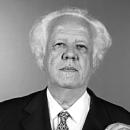
In thanksgiving for the 14th Amendment
MÁS EN ESTA SECCIÓN
Photo by Yesid Vargas/AL DÍA
Editor's note: this column appeared originally in the blog Following the Lede in 2010. While Rep. Steve King is no longer chair of the House subcommittee on immigration, he is still an advocate of changes to the 14th amendment, as well as other immigrant-unfriendly legislative initiatives.
Rep. Steve King (R-Iowa), likely chair of a House subcommittee on immigration in the next Congress, has vowed to take on the 14th Amendment's guarantee of citizenship by jus soli ("right of the soil") for the U.S.-born children of undocumented immigrants. In an interview with a columnist for Iowa's Cityview (http://dmcityview.com/2010/11/18/columns/mercury.html) King is quoted as saying:
"The framers did not consider the babies of illegals when they framed the 14th amendment because we didn't have immigration law at the time so they could not have wanted to confer automatic citizenship on the babies of people who were unlawfully in the United States," King said.
The 14th Amendment was adopted on July 9, 1868 (one of the "Reconstruction Amendments" adopted immediately after the Civil War) guaranteeing (male) former slaves and their descendants the same rights to birthright citizenship as white American men. Setting aside for a moment any other objections to King's comment, let's just consider that a percentage of the population of the undocumented in the U.S. are the victims (and children of the victims) of modern day slavery - human trafficking - and precisely the contemporary equivalent of who the framers of the 14th sought to guarantee citizenship for. The U.S. Department of State reports:
"The United States is a source, transit, and destination country for men, women, and children subjected to trafficking in persons, specifically forced labor, debt bondage, and forced prostitution ... Trafficking occurs primarily for labor and most commonly in domestic servitude, agriculture, manufacturing, janitorial services, hotel services, construction, health and elder care, hair and nail salons, and strip club dancing. Vulnerabilities remain even for legally documented temporary workers who typically fill labor needs in the hospitality, landscaping, construction, food service, and agricultural industries. In some human trafficking cases, workers are victims of fraudulent recruitment practices and have incurred large debts for promised employment in the United States, which makes them susceptible to debt bondage and involuntary servitude ... combined federal and state human trafficking information indicates that more investigations and prosecutions have taken place for sex trafficking offenses than for labor trafficking offenses, but law enforcement identified a comparatively higher number of labor trafficking victims as such cases often involve more victims." (http://www.state.gov/g/tip/rls/tiprpt/2010/142761.htm)
Moreover, the report states that the primary countries of origin for victims of human trafficking are virtually indistinguishable from the primary countries of origin for non-trafficked undocumented immigrants who have crossed borders or overstayed visas:
"Primary countries of origin for foreign victims certified by the U.S. government were Thailand, Mexico, Philippines, Haiti, India, Guatemala, and the Dominican Republic. Eighty-two percent of these foreign adult victims and 56 percent of foreign child trafficking victims were labor trafficking victims. " (http://www.state.gov/g/tip/rls/tiprpt/2010/142761.htm)
Humantrafficking.org estimates that 17,000+ people are trafficked to the U.S. annually, but all sources of statistics agree trafficking is vastly under reported - and sometimes impossible to distinguish from non-trafficked undocumented immigration. Even in King's implied narrow interpretation of 14th Amendment, a determination of trafficked vs. non-trafficked immigration would have to be made before birthright citizenship was denied to a U.S.-born child of an undocumented person - a logistical and financial (and ethical) nightmare.
Also according to Cityview:
"King wants Congress to pass a ban on 'anchor babies,' place it in statute, and wait for the other side to challenge the prohibition in the courts. If King and his forces lose, they'll move for a constitutional amendment to change the practice, he said."
I'm moved to think about this as the nation is about to celebrate Thanksgiving - a holiday that commemorates our nation's history of uninvited and undocumented immigration. I have no idea of King's heritage (nor do I care) but unless he is a registered member of one of the Native American/American Indian nations, he doesn't get to use the term "anchor baby" without acknowledging the irony and sheer hubris of it. The vast majority of us are the children, grandchildren, great-grandchildren of "anchor babies." Yes, even charter members of the Daughters of the American Revolution and those who trace antecedents to the Mayflower, the Nina, Pinta and Santa María or any of the European sailing vessels that landed on the shores of the "New World." Jus soli is the only reason many Americans can claim citizenship.
The photo at the top of this post is from one my family's Thanksgiving dinner prep several years ago. I wrote back then how significant it was to me that at that dinner, the family who sat around the table included Britons and Americans born in Mexico, Guatemala, Thailand and New York; the children of Bengali and Guatemalan immigrants; the grandchildren, great-grandchildren and great-great-grandchildren of Greek, German, Welsh and Spanish immigrants.
My own father was what King so disrespectfully calls an anchor baby. My grandparents were in transition from Greece to Cuba to Colombia when my father was born. Who knows what my grandparents' documentation status was - things were done differently then and what I've seen of the official correspondence between my grandfather and consulates leaves much in the dark. But my father was born in Chicago, Ill. - as we say in Spanish, a mucha honra - to his great pride. An American citizen. A veteran of World War II and the Korean War. A Northwestern U. graduate. The CEO of a multinational corporation. A lifelong Chicago Cubs fan. A man who contributed to building up the nation in countless ways.
I'd put my father's bona fides up there against King's any day. And yet, were my father to be born after King takes up the chairmanship of the House's immigration committee, the Iowa representative would propose to deny my father his right to citizenship.
I'm no constitutional scholar (nor even much of a historian) but it seems to me that King's desire to rescind birthright citizenship for a certain "kind" of person born on this soil directly contradicts the intent of Abraham Lincoln and others who sought, through the 14th Amendment, to prevent two types of existence in our nation - one free, the other enslaved.
This Thanksgiving when my immediate family gathers around the long, scarred farm table that holds our board, I will pray in memory of my forebears and in hope for my daughter and her children, that in years to come we come to recognize that not all gifts come wrapped in familiar paper.
And that some don't come with papers at all.






DEJE UN COMENTARIO:
¡Únete a la discusión! Deja un comentario.